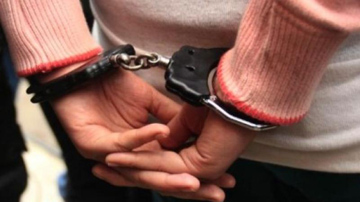Mangaluru, Nov 20: The police have invoked the Protection of Children from Sexual Offences Act (POCSO) Act) against a youth who blackmailed a minor girl from Nelyadi in Puttur taluk after morphing her photo.
 The accused has been identified as Mahesh N (20), a resident of Nekkyaradka in Belthangady.
The accused has been identified as Mahesh N (20), a resident of Nekkyaradka in Belthangady.
According to police, Mahesh had befriended a minor girl while pursuing his education in Nelyadi. He used to call her and demand sexual favours.
He had also threatened the girl that if she does not oblige him, he would morph her picture with a nude one and later circulate it on social media.
When she resisted, he morphed her picture and circulated it on social media. Acting on a complaint registered on Novmeber 2, at Dharmasthala police station, police had arrested him from Bengaluru on Friday.
He was charged with Indian Penal Code 292 and 509, IT Act (67) and Pocso Act.




Comments
BAJRANGI Represent
The bajarangi pepole work
Please punish this chaddi kamuka..
Add new comment